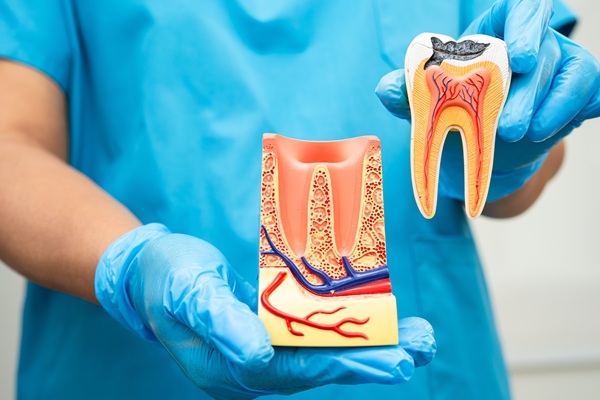Signs of a Failed Root Canal

Root canal therapy is an effective way to restore infected teeth. However, like any procedure, there are cases where complications arise and the treated tooth may not heal as expected. It is important to know the signs of root canal failure so that you can get the tooth treated again as soon as possible. Addressing a failed root canal promptly can fix any issues and relieve symptoms, as well as protect the health of the tooth.
Why a root canal may fail
Several factors can contribute to the failure of a root canal procedure. One of the most common causes is the presence of complex canals within the tooth. Some teeth, like molars, may have multiple tiny canals that are difficult to clean thoroughly. If bacteria stay trapped inside, infection can persist and compromise the success of the root canal.
Another common reason for root canal failure is that the tooth was not sealed completely. Even with precise treatment, microscopic pathways or cracks may allow new contamination over time. In addition, new dental trauma or tooth decay can also lead to reinfection. Each of these issues demonstrates the importance of comprehensive evaluation and careful planning by a general or emergency dentist. The condition of the tooth before a root canal could also cause the procedure to fail. This includes issues such as the infection being too severe or the tooth being too weak.
Signs of a failed root canal
A failed root canal does not always present obvious symptoms immediately. Discomfort may reappear months or even years after treatment. Recognizing the warning signs ensures that patients can access quick care before further complications develop.
Common signs of root canal failure include:
- Persistent or recurring pain in the treated tooth
- Swelling of the gums or face near the treated area
- Discoloration of the affected tooth
- Formation of small bumps or abscesses on the gums
- The treated tooth becomes loose or tender
Although these symptoms vary in intensity, they should not be ignored. A general or emergency dentist can perform a thorough evaluation to confirm whether retreatment or another procedure is necessary. If retreatment cannot save the tooth, extraction followed by a dental implant or bridge may be the most appropriate solution.
Preventing root canal failure
While there is no guaranteed way to prevent root canal failure, patients can lower their risk. To start, they can choose a general or emergency dentist experienced in root canal therapy. The more often the dentist performs root canals, the more skilled they become at doing an excellent, thorough job.
It is also a good idea to follow the dentist’s advice after the root canal, such as if they recommend reinforcing the tooth with a dental crown. When needed, this step reduces the chances of future failure. Otherwise, the treated tooth may remain vulnerable, increasing the chances of future failure.
For the long term, good oral hygiene practices, like consistent brushing, flossing, and professional cleanings, further protect the success of a root canal. Try to avoid teeth grinding, chewing on ice, and other habits that can wear down or chip teeth or crowns.
Supporting the success of a root canal
There is a potential for root canal failure, but the chances of it happening are low when performed by a trained general or emergency dentist. Our Portland team can also provide personalized advice on further reducing the risk of root canal failure. For more information, contact Inspire Dental of Maine today.
Request an appointment here: https://www.inspiredental.me or call Inspire Dental of Maine at (207) 221-5578 for an appointment in our Portland office.
Check out what others are saying about our dental services on Yelp: Root Canal Treatment in Portland, ME.
Related Posts
Many people will lose at least one tooth at some point in their lives, which can lead to oral health issues. Fortunately, a restorative dentist can replace missing teeth in several ways. These options can help patients restore the function and appearance of their smiles.Bone tissues need to be regularly stimulated to remain healthy, as…
A restorative dentist can help you to build the smile of your dreams. These are typically general dentists who spend a large portion of their time performing restorative treatments. While dental restorations focus primarily on restoring the function of damaged teeth, these treatments also provide cosmetic benefits.Dental technology has made tremendous improvements in the past…
Regular checkups and cleanings with a family dentist are important ways to prevent cavities and tooth decay. However, there are effective strategies that can help you protect your teeth and maintain your oral health in between appointments. The following tips from a family dentist can create a proper oral hygiene routine and reduce the risk…
Same-day dentures provide a fast solution to replace missing teeth, restoring function and appearance without a long wait period. Losing teeth can be challenging, affecting daily activities like eating, speaking, and smiling. Many people worry about the time it takes to get dentures, especially when traditional methods require several visits over weeks or months. However,…
